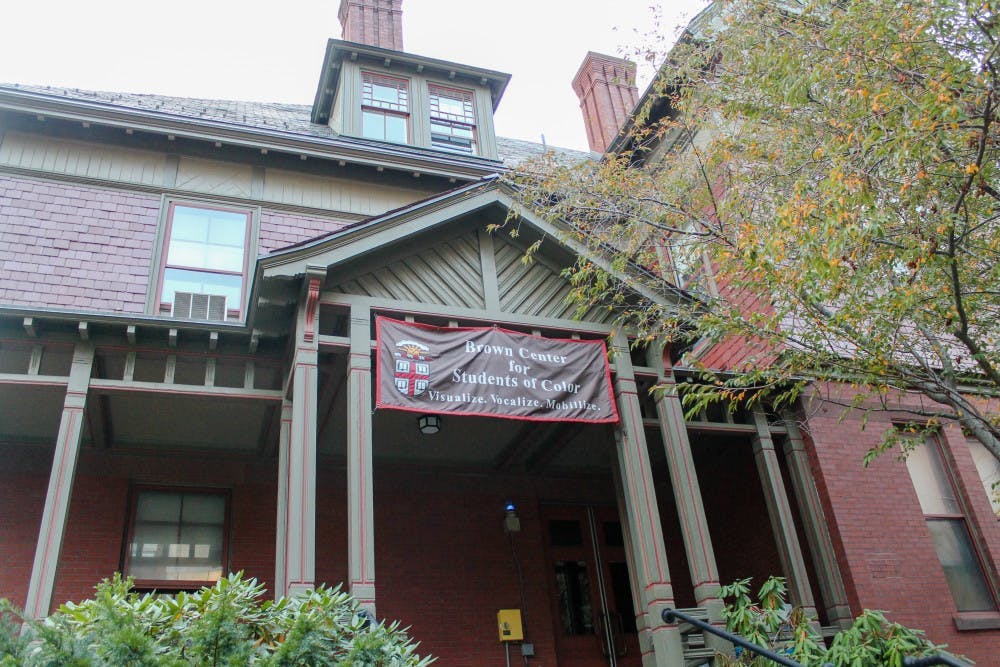Students who completed the Third World Transition Program, a four-day pre-orientation geared toward students of color, last Wednesday said they found a new community while completing workshops.
Founded in 1969 as the Transitional Summer Program, TWTP welcomes incoming first-years to Brown with “an introduction to the support structures and resources available to them” and workshops regarding “systems of oppression that exist in our society today,” according to the program’s website. TWTP is organized by a team of student coordinators and staffed by Minority Peer Counselors, who oversee cohorts of about 15 students each during the program.
MPC Rachel Ly ’25 described the program as a space for students to “learn about themselves, learn about Providence, learn about their communities … and learn about how to survive in a place that wasn’t made for them.”
A series of workshops organized by MPCs for students was central to TWTP’s programming. Ly organized a workshop centered around ableism, an event which she explained is in line with the program’s focus on systems of oppression.
“All of the workshops (in TWTP) were about different ‘-isms,’ ” Ly said. “That includes ableism, classism, racism (and) environmentalism,” among others.
Ly added that when speaking to students after the workshop, many noted that ableism was never discussed in their high schools or the media they consumed. “I thought it was really special to highlight something that is so pressing (but) definitely isn’t in the limelight enough,” she said.
MPC Brandon Ulin ’25 organized a workshop on cisheterosexism, the concept that cisgender identity, heterosexuality and binary sex assignment are privileged in society. “Before college, a lot of the students aren’t exposed to these heavy terms,” he said, “so we wanted to find a balance between exposing them to the terms (while) opening conversation and allowing them to ask questions.”
TWTP participant Dre Boyd-Weatherly ’26 said she enjoyed the MPC workshops, especially the ableism workshop, for “bringing issues that don’t affect us to light, especially when we’re in community with people” affected by them.
After originally joining TWTP to learn how to navigate campus and access available resources, Boyd-Weatherly said she found a “warm and welcoming” community of students.
“I’m still talking to students from TWTP,” she said. “It’s fun to now come to orientation events and be around people who did TWTP.”
Boyd-Weatherly added that she appreciated having a support system in place before orientation began, which she was “really nervous about” before arriving on campus.
Ilana Nguyen ’26, another participant, praised TWTP for fostering new friendships among incoming first-years.
“Because we moved in early, it was … a lot easier to just walk up to random people and say ‘hi,’ ” Nguyen said. “You had shared experiences to talk about, and you know that they were there because they are interested in some of the same issues as you were.”
“I know past participants said that some of their longtime friends were from TWTP,” she added, “and I think that might shape up to be the case for me.”
According to MPCs and students, TWTP’s cohort system allowed for students to form relationships with their MPCs beyond the program.
Throughout the orientation events, Ulin emphasized he was the first-years’ peer, he explained.
“I think I was successful in doing so because now … everytime I see them in the gym they wave … and we catch up,” he said. “I’m really excited to see them flourish here at Brown.”
The cohorts were “a really nice way to meet new people and find out what people’s interests were,” Boyd-Weatherly said, adding that her MPC was helpful in providing advice about classes, extracurriculars and life at Brown.
Nguyen’s TWTP cohort offered a community that made the transition to Brown “easier,” she added.
Cole Francis ’26, another TWTP participant, noted that he now feels “more comfortable being (himself) and starting off this journey with a different lens,” he said. “I don’t have to dim my light or assimilate to any broader culture at this school.”
“Taking up space as a student of color (and) as a Black person on a predominantly white institution’s campus, I noticed (during general orientation) that there are so few of us,” Francis added. “If we don’t take up this space, a lot of issues (or) grievances that we have won’t be heard by the wider population of Brown.”

Neil Mehta was the editor-in-chief and president of the Brown Daily Herald's 134th editorial board. They study public health and statistics at Brown. Outside the office, you can find Neil baking and playing Tetris.





